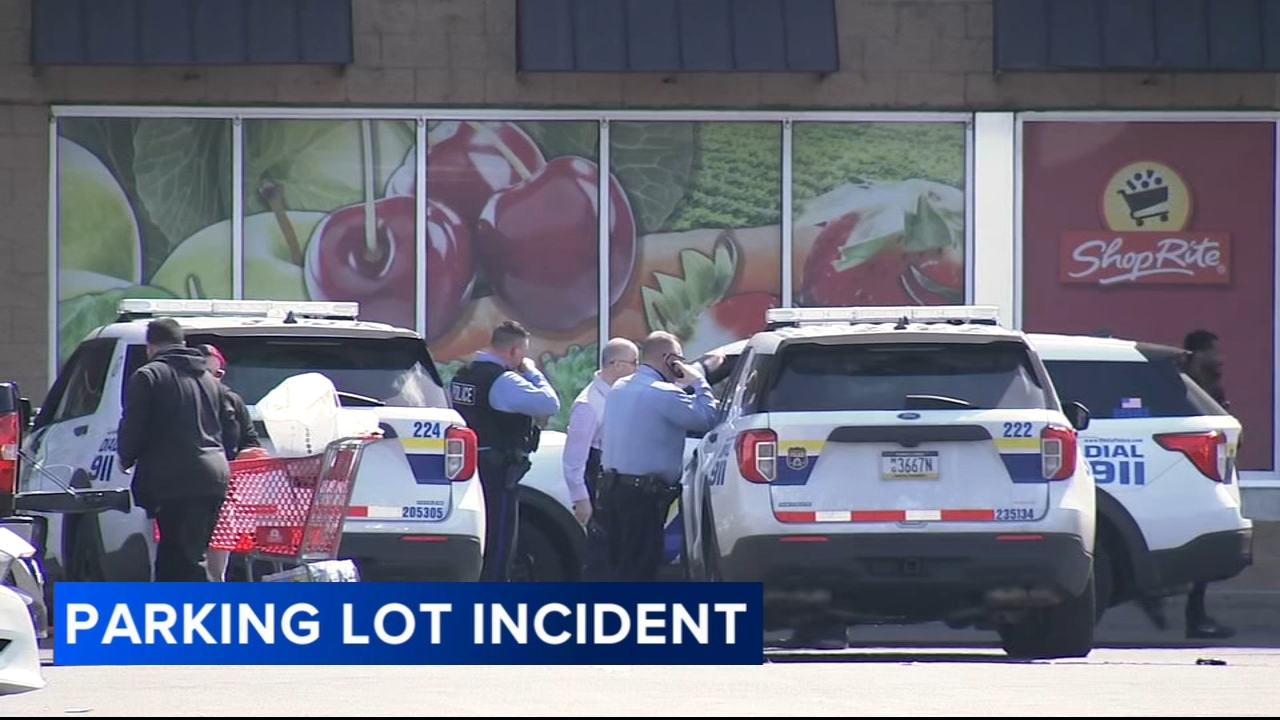How George Floyd's murder sparked art as a form of activism in Philadelphia

PHILADELPHIA (WPVI) -- As Kodjovi Sevon watched the heartbreaking video of George Floyd dying on the ground with a police officer's knee on his neck, he felt sick.
"It made a lot of people angry, especially me," he said of his feelings on March 25, 2020, the day Floyd was murdered by former Minneapolis police officer Derek Chauvin.
Sevon, an artist from Southwest Philadelphia, felt compelled to do the one thing he knows how to do best: create.
"I felt like the best thing I could do was what I was good at," he said.
Sevon began working on a plan with his friend who worked at Shyne Jewelry store on South Street.
SEE ALSO: Philadelphia police, community mark one year since George Floyd's murde

The owner agreed to let Sevon use the plywood that boarded up the windows of the store as a canvas. For the next two hours, he used spray can after spray can, shaping and perfecting until the image on the plywood was a portrait of George Floyd.
His creation captivated the people who watched him paint both on social media and in person.
"When I got down there, there were like 40 cops watching," he said. "It was like a whole crowd behind me."
It took Sevon about two hours to create the massive black and white portrait. Next to it were the words now infamously associated with Floyd's murder: "I can't breathe."
Sevon says that he felt compelled to use his art to make a statement.
"For the message to get across that this shouldn't happen to people strictly because of the color of their skin," he said.
North Philadelphia native and artist Russel Craig felt the same duty to use his talent to make a statement. His work now stands as a larger-than-life three-part mural wrapped around Philadelphia's Municipal Services Building.
The massive mural features portraits of people of color. On one side, there are protesters who spent the spring and summer of 2020 calling for justice in demonstrations across Philadelphia.
SEE ALSO: State of Black mental health one year after George Floyd's murder

The second side of the mural features the portraits of Black women who have been instrumental in the fight against racial injustices and who have also helped mobilize the Black vote.
On the third side of the building, there is a mural reflecting people of color engaged in acts of self-care and healing.
Craig also used the background of the portraits as a way to make a statement, listing the names of people killed by police, including George Floyd.
"These acts just keep happening. So (my art is) just another approach. And we find ways to fight," he said. "I think that's my duty."
Across the country, art sprang up everywhere-- from protest signs to permanent murals in the year since Floyd's murder. The Philadelphia Arts Commission has always believed in the power of art.
"Mural Arts Philadelphia is the largest public arts project of its kind dedicated to the idea that art ignites change," said Chad Eric Smith, director of communication and brand management at Mural Arts Philadelphia.
SEE ALSO: St. Joe's student body president discusses how murder of George Floyd rocked campus

In the year of activism, he was named the first Black man to ever hold that position with the nonprofit.
The mural commissioned at the Municipal Services Building replaces another piece of art that once stood there: a statue of former Philadelphia Mayor Frank Rizzo who many believe instituted racist policies.
"(Replacing the statue with the mural) was very intentional," said Smith. "It was about time, right? I think people felt like we needed to make real, decisive change."
Artists like Craig hope they can continue to be a part of that change.
"It just gives you an opportunity to get out and... lend your voice to something that needs a voice," he said.




